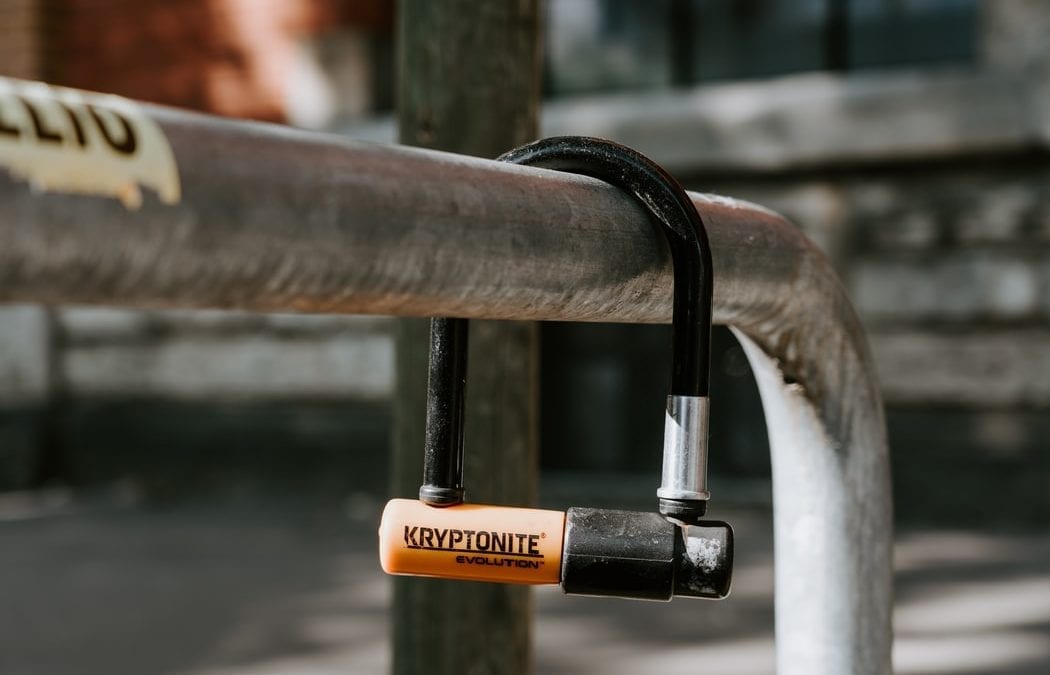Bike thefts are increasing in Canada: Here’s what you can do to protect your bike
Project 529 is working to reduce the number of stolen bikes
 Photo by:
unsplash/Claudio Schwarz | @purzlbaum
Photo by:
unsplash/Claudio Schwarz | @purzlbaum
Cycling as a socially distant means of exercise and transit has renewed interest in bikes and triggered the bike boom of 2020. New bike sales are up, used bike sales are up and cyclists are riding more frequently than before. Unfortunately, as more bikes hit the streets, bike theft has also gone up.
J Allard, CEO of Project 529, estimates that there has been about a 30 per cent increase in bike theft during the pandemic. “Our belief would be that the increase is more a function of increased supply and demand,” he says. “There are more people riding, more bikes being parked and more people looking to buy used bikes. In general all good trends for cycling, but all serve to also fuel thefts.”
Project 529 is a free bike registration service that helps reduce bike theft, promote cycling, and make cities and campuses more bike friendly. More than two million bikes are stolen in North American every year and Project 529 estimates that bike theft accounts for a billion dollars in loss annually.
RELATED: How to safely and properly lock your E-bike
There are a three key actions Allard recommends cyclists take to address the problem.
Lock your bike properly
More than half of stolen bikes are attached with cable locks. Allard recommends at least a U-lock, rated at minimum a ‘9’ on the Abus scale or ‘6’ on the Kryptonite scale. Lock your bike to a secure rack or object, and make sure to lock both a wheel and the frame. “Locking both the wheel and the frame disables the bike and requires that the lock be defeated to ride it,” says Allard.
He cautions against simply locking the top tube with a U-lock, as, if the object it’s locked to is broken the bike can be simply ridden away (and the lock dealt with later). The top tube can also be used as a lever to break the lock.
Register your bike
Although police recover hundreds of thousands of stolen bikes every year, fewer than one per cent of these bikes are registered and less than five per cent are returned to their owners. When a bike isn’t registered, police, shops and used buyers have no way of determining if the bike is stolen or contacting the owner if they find it.
Police can’t prosecute or seize a bike if they can’t tell it’s stolen. That being said, most police won’t even take a report on a stolen bike if you don’t have the details of it (at least serial number), something most owners don’t have recorded anywhere.
Bike registries help address these problems. Programs like 529 Garage can help cyclists activate the community and get the word out about their stolen bike. About 50 per cent of 529’s successful recoveries are community assisted.
“Even if 529 isn’t ‘big’ in your area, it’s still worth doing as we guide owners to record everything they need for a good police and good insurance report,” says Allard.
Report stolen bikes
Project 529 estimates only 15-20 per cent of stolen bikes are reported to the police. Because the crimes are majorly under-reported, municipal bodies aren’t currently aware of how large the bike theft problem is and how many people are affected.
Even if reporting a stolen bike feels futile, it helps to bring visibility to the issue and aids those who are fighting for increased resources to combat bike theft.
“In cities like Vancouver and Portland, where we have worked closely with police, shops and cyclists, we’ve had great results,” says Allard. “In Vancouver, where theft was doubling every 4 years, together we cut it by 40 per cent over 4 years—not just stopping the growth, but reversing it! Police are returning bikes at close to three times the rate then when we started. That’s a huge impact with just a few simple steps by the community.”
To date, more than 1.7 million bikes have been registered with Project 529. Vancouver has seen the most success in Canada, but Ottawa and its surrounding cities have also been able to see a reduction in theft after just one year partnering with the program.
